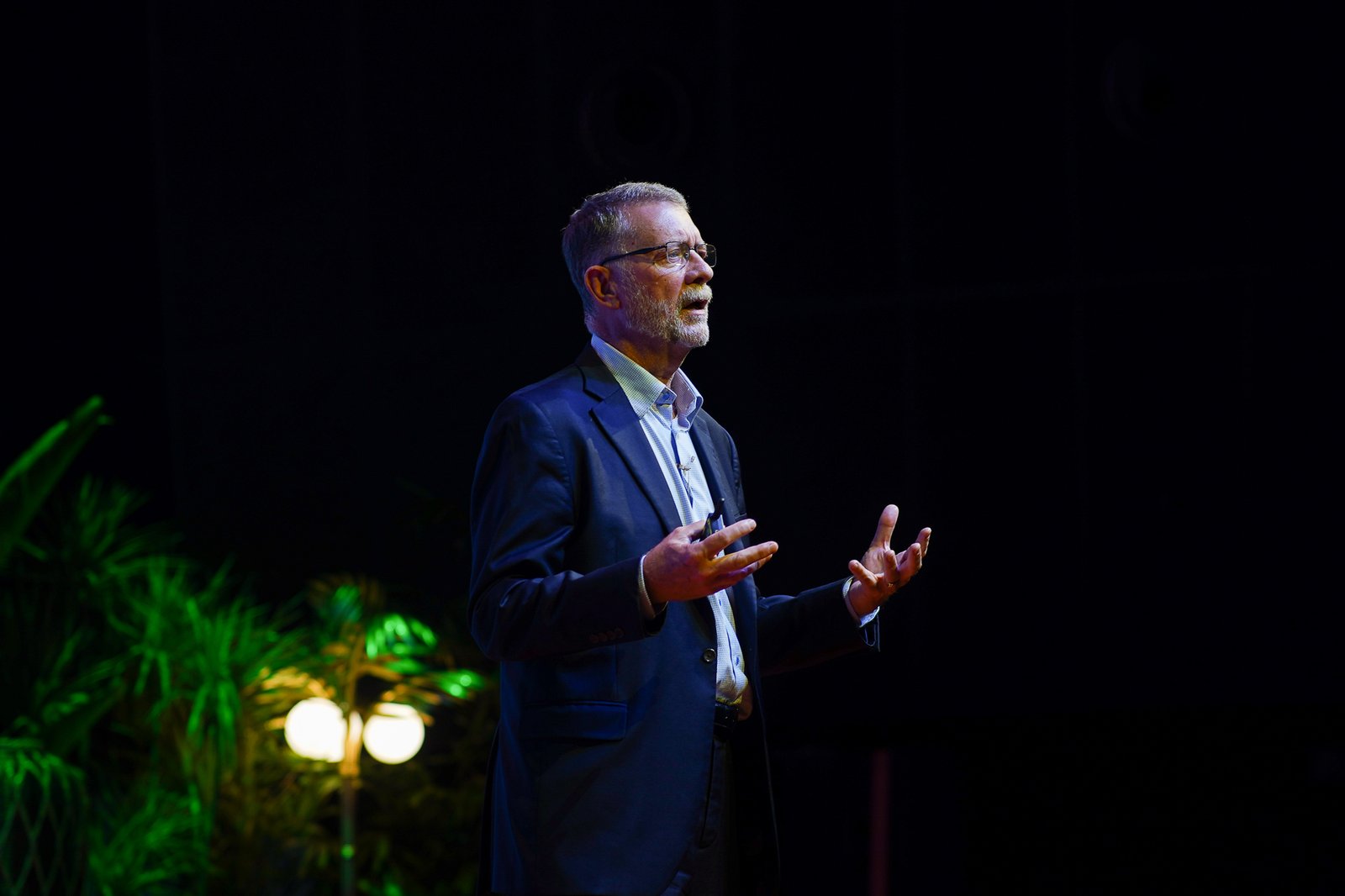Introduction and interview The Kanto team
Images Joe Pine and DTI-Design Center of the Philippines
For The Experience Economy and Transformation Economy co-author Joe Pine, business reaches its highest purpose when it contributes to the flourishing of the wider community. This was the challenge he set for his session at the recently concluded International Design Conference 2025 (IDC), organized by the DTI – Design Center of the Philippines. IDC’s lineup included leading voices such as NOSIGNER’s Eisuke Tachikawa and FEATR’s Erwan Heussaff, each addressing what it takes to drive transformation toward collective flourishing.
“The reason for the existence of your business [should be] to help people collectively flourish; you help not just the customers, but also the employees. It [would create a ripple effect] on the communities and societies in the Philippines. Then, you’re making a real difference—you’re making an impact,” Pine told his audience of more than 500.
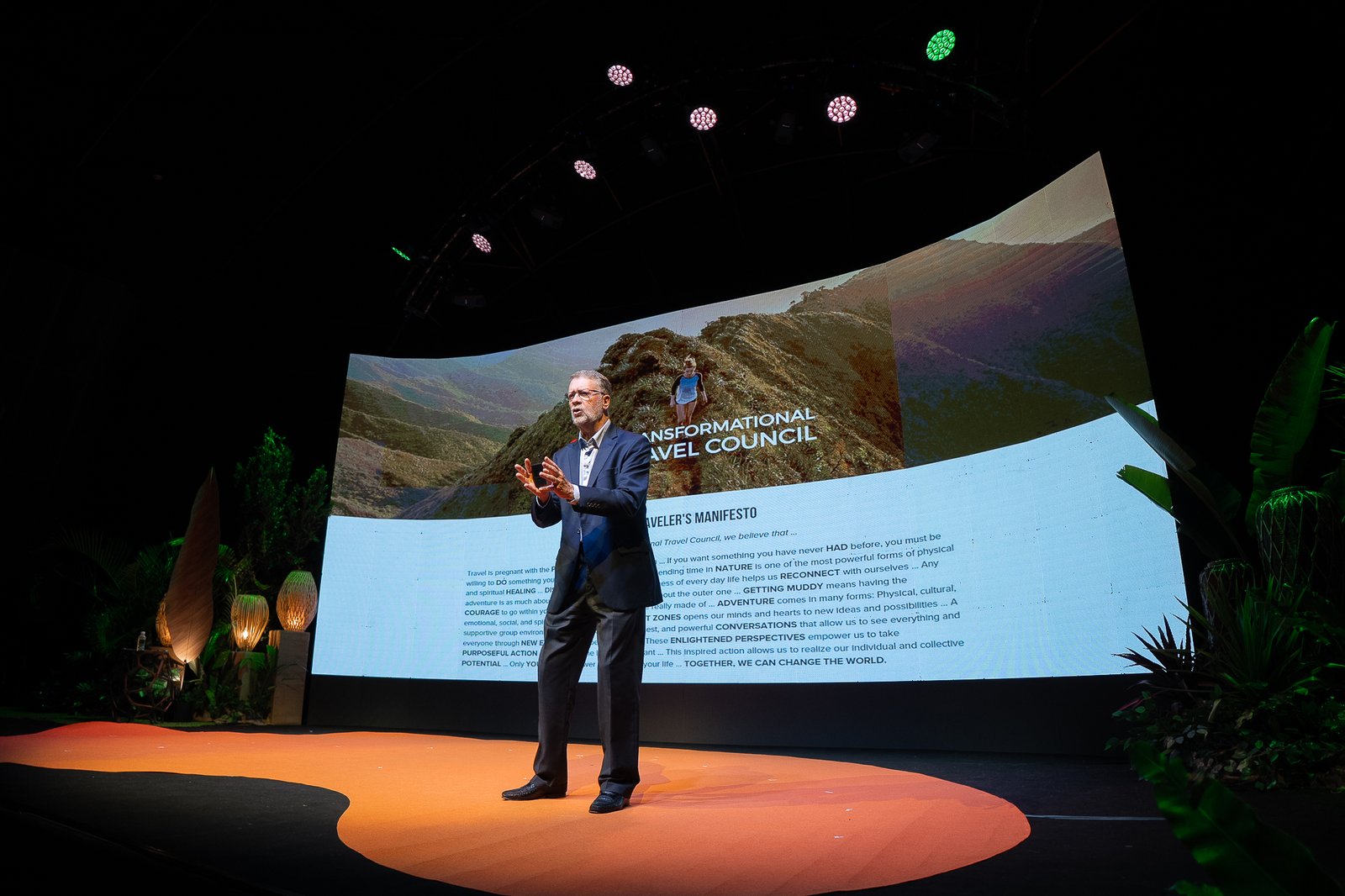
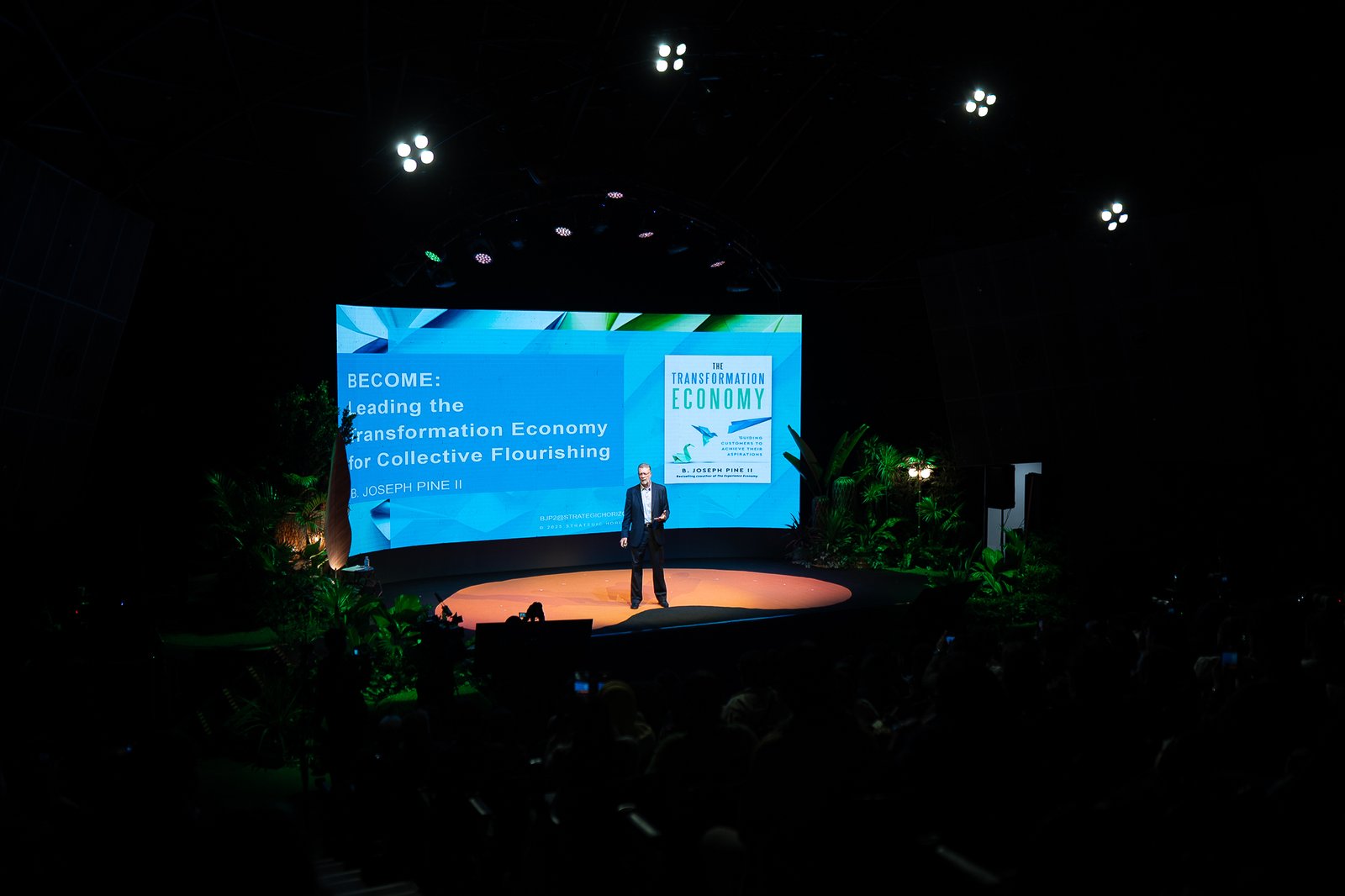
Pine, who also co-founded the “thinking studio” Strategic Horizons, urged participants to move beyond serving toward elevating and leading—questioning the status quo where needed, and embracing change in a world where flux is the only constant. Only then, he argued, can collective flourishing be achieved.
We caught up with Mr. Pine after his IDC session to dig deeper into his insights, and to hear his perspective on the rise of AI and immersive technologies that are reshaping the landscape of experiences and transformations.
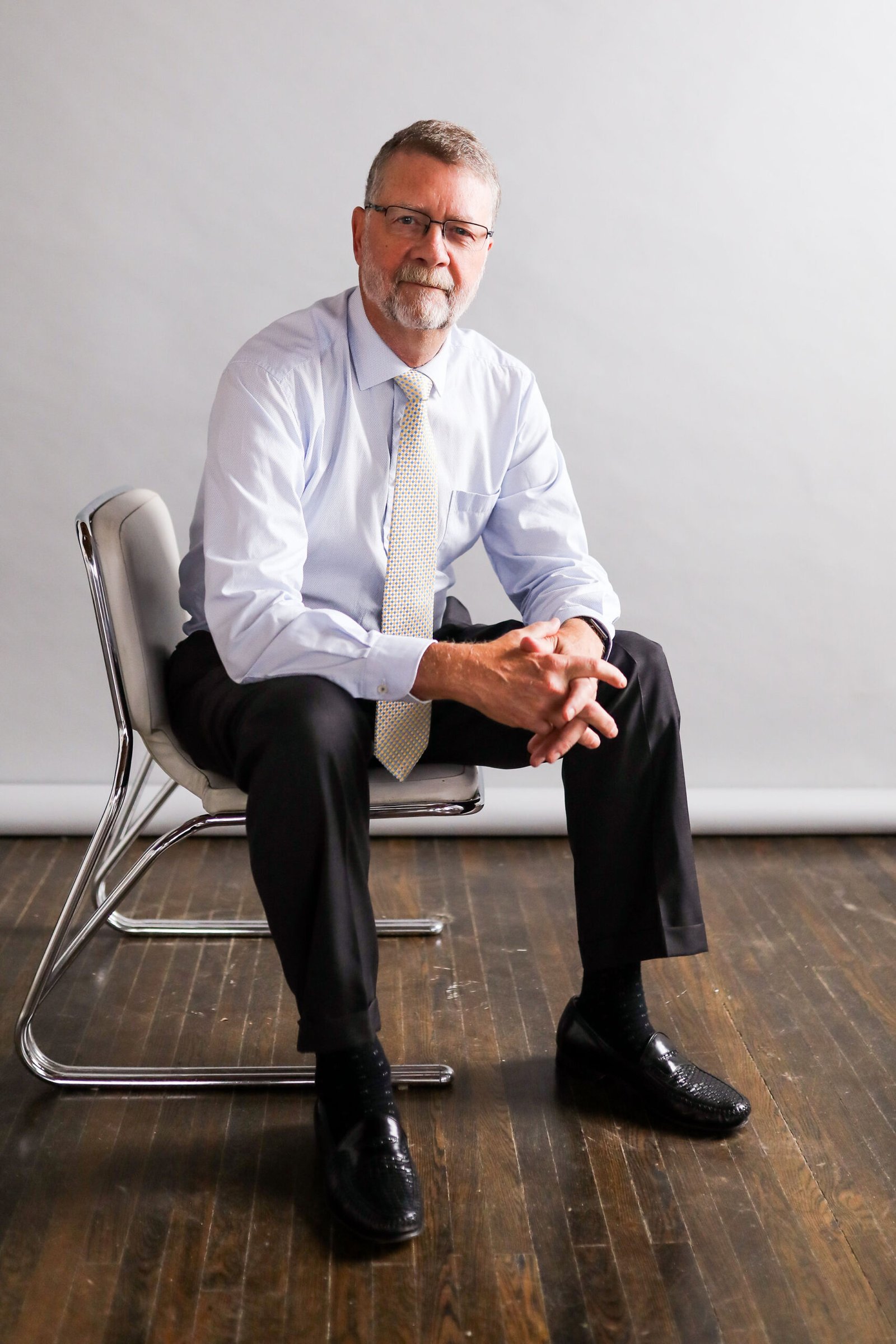

Hope you’ve enjoyed your brief stay in the Philippines, Mr. Pine! In your book The Experience Economy, you outline the shift from goods to services, experiences, and finally transformations. In the Philippines, what do you see as the most distinct opportunities for businesses to design experiences—before they even reach the level of transformations?
Joe Pine, author, speaker, and business strategist: The opportunity is almost limitless! Experience places include theatres, arenas, stadiums, concert halls, museums, and other such “traditional” experiences, as well as new genres such as escape rooms, immersive art, and competitive socializing. Then there are events such as festivals, exhibitions, and showcases—including all the B2B versions of those. And let’s not forget retail, hospitality, restaurants, and almost anywhere consumers go. Any place—physical or virtual—where people, as consumers or businesspeople, spend time can benefit from experience design, for at its most simple, it is the design of time: what happens in a place over time.
Locally, consumers often chase international brands for status—and international brands recognize this with the steady arrival of new names in Manila—even while local culture is rich and distinctive. If authenticity means staying true to one’s heritage, how could Filipino businesses balance global appeal with showcasing what’s uniquely local? Or is there an altogether different path forward?
Joe Pine: In our book Authenticity: What Consumers Really Want, Jim Gilmore and I talk about two standards of authenticity, one of which is being true to self. Heritage is one of the five elements of being true to self, with the others being the essence of enterprise, the nature of offerings, the sense of purpose, and the body of values. Heritage is the narrative of your origin and history, which can evolve over time to incorporate different aspects and keep a company relevant and authentic in a changing world. That can allow any Filipino company to maintain its authenticity as it fuses what makes it uniquely local with new-to-the-world innovations.
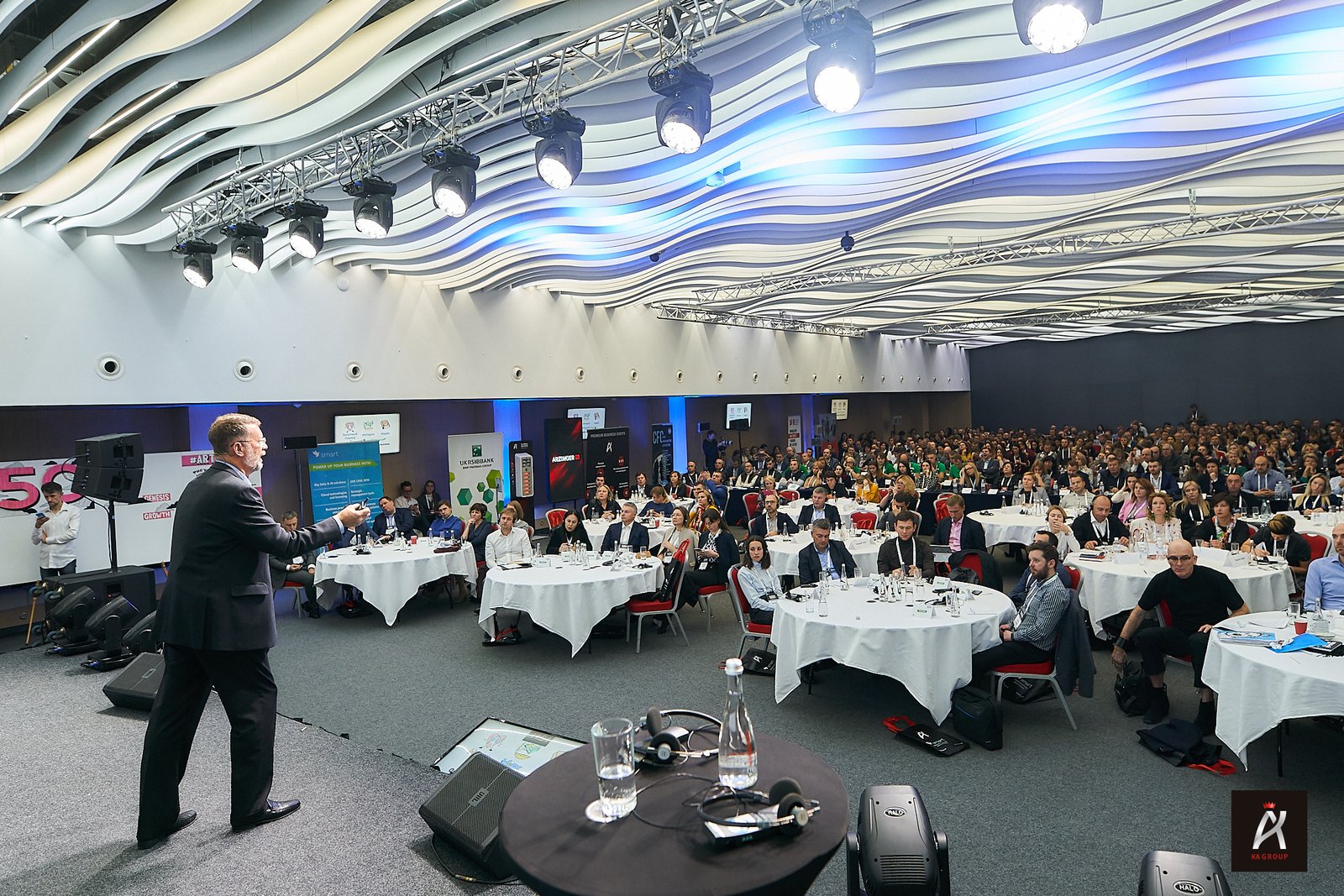

When companies try to move from staging experiences to enabling transformations, what first step usually makes the biggest difference? And how might that step look in a Filipino business context?
Joe Pine: The first step is to really commit to being a transformation guider, to decide that it is the business you are really in. So much can flow from that. Further, for experience stagers, they can turn any experience into a transformative one through what I call “encapsulation,” surrounding the experience with three steps: preparation beforehand, reflection afterward, and integration on an ongoing basis. Preparation opens guests to the possibilities of transformation, particularly in their own context and situations. Reflection prompts guests to think about the experience—or set of experiences—to understand what they saw differently, felt differently, or did differently, and how that could lead to a new or enhanced aspect of identity that transforms them. The true transformation then happens as they integrate that change into their lives over time.
I am no expert on Filipino business, but I do understand the culture of hospitality that permeates the country (as the IDC exemplified for me). Hospitality naturally includes not just the time a guest spends with the host but also the moments before and after, which can then easily lead to encapsulation.
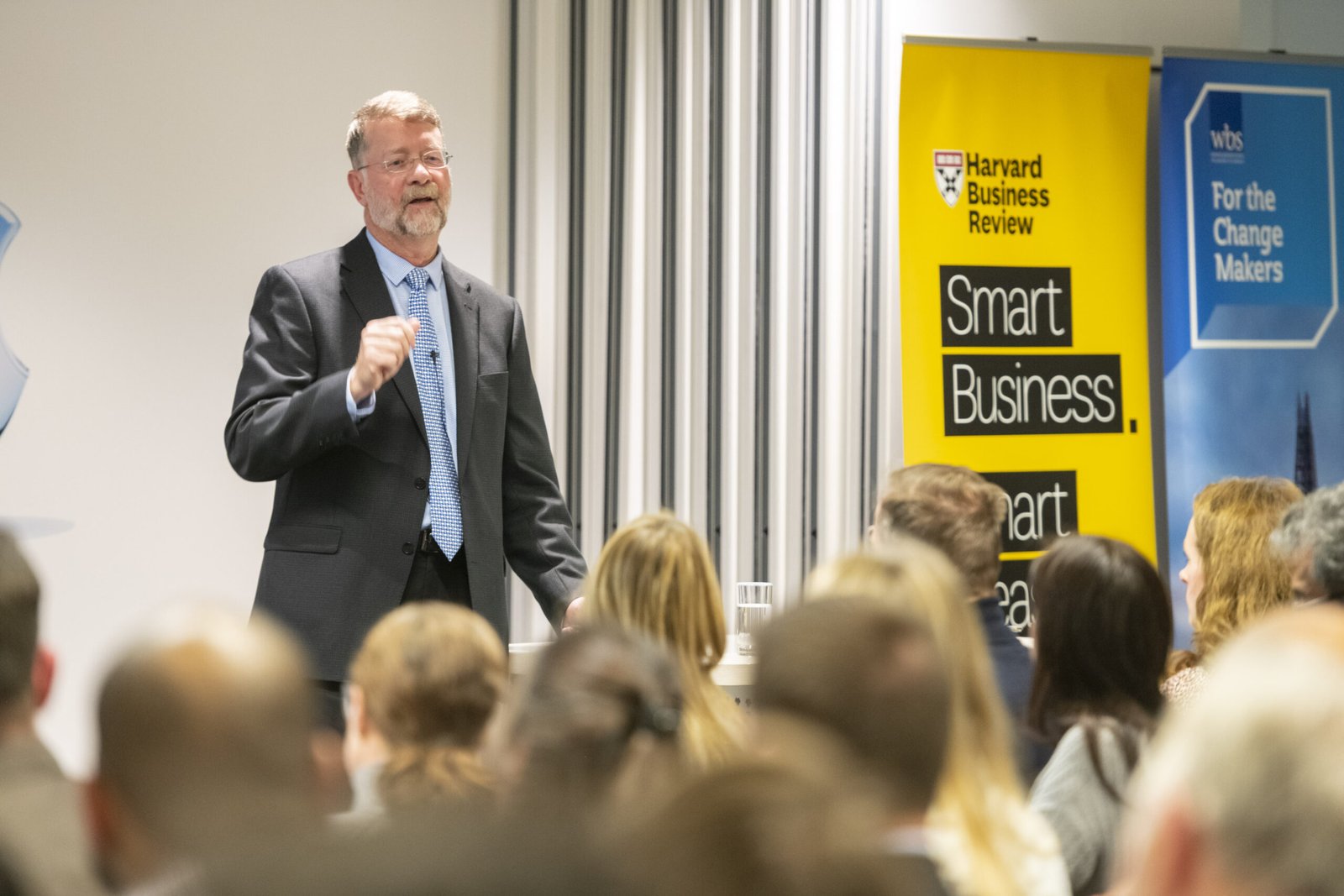

Today, immersive and interactive technologies, ranging from AI to virtual reality/AR, have transformed how we discuss experiences and transformation. However, in your work, the human element is always central. How do we ensure transformational experiences remain truly human in this tech-driven era?
Joe Pine: They cannot help but be human! Commodities, goods, and services all exist outside of us, but experiences happen inside of us, and transformations change us from the inside out. With transformations, the customer is the product; a changed person is the result. Economically, transformations are effectual outcomes that change individuals in a lasting way. So, they are intrinsically human!
Of course, the guiding of transformations can be physical, virtual, or combinations in between. It can be done by human coaches over virtual connections, and it can have purely virtual components through, for example, AI. And all the above is already happening, but the power of human connection will, I believe, always predominate.
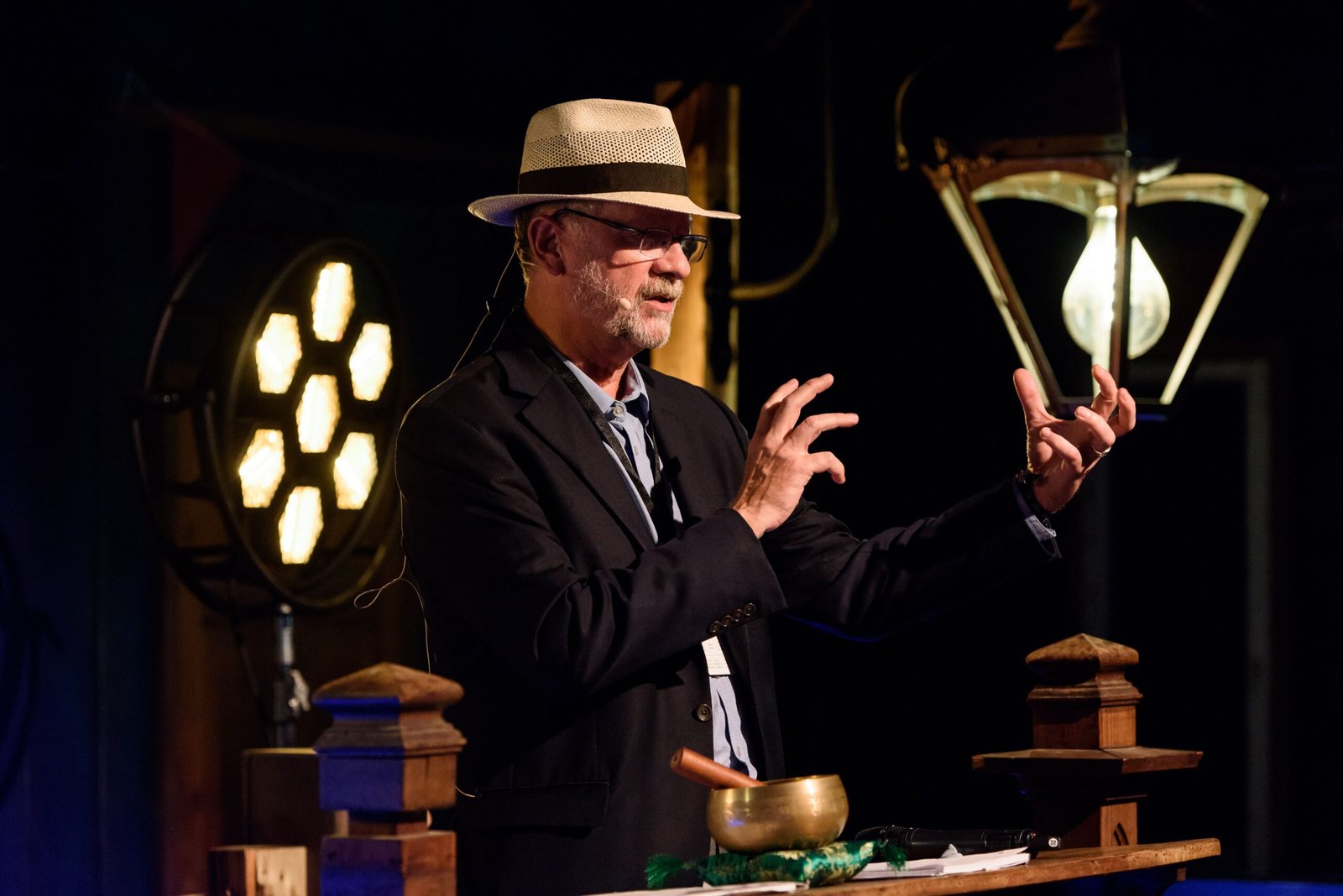

For Pine, that conviction is both practical and urgent. As technologies accelerate, the leaders who will matter most are those who ensure that experiences and the transformations they spark remain authentically human. We would like to thank Mr. Pine for his time and the DTI – Design Center of the Philippines for making this conversation possible. •
Kanto.PH is a media partner of the International Design Conference 2025.
